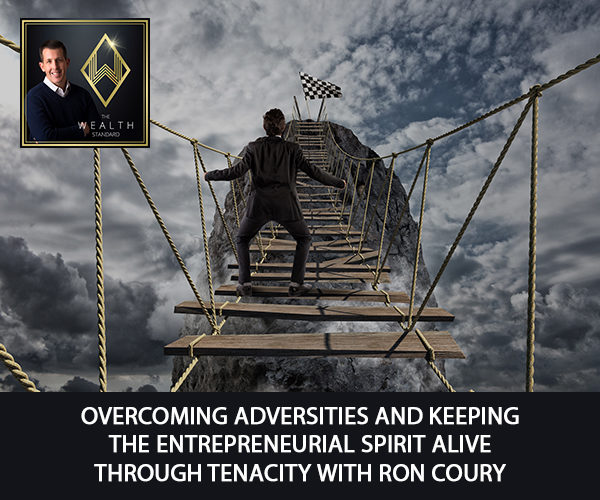Overcoming Adversities And Keeping The Entrepreneurial Spirit Alive Through Tenacity with Ron Coury
Podcast: Play in new window | Download
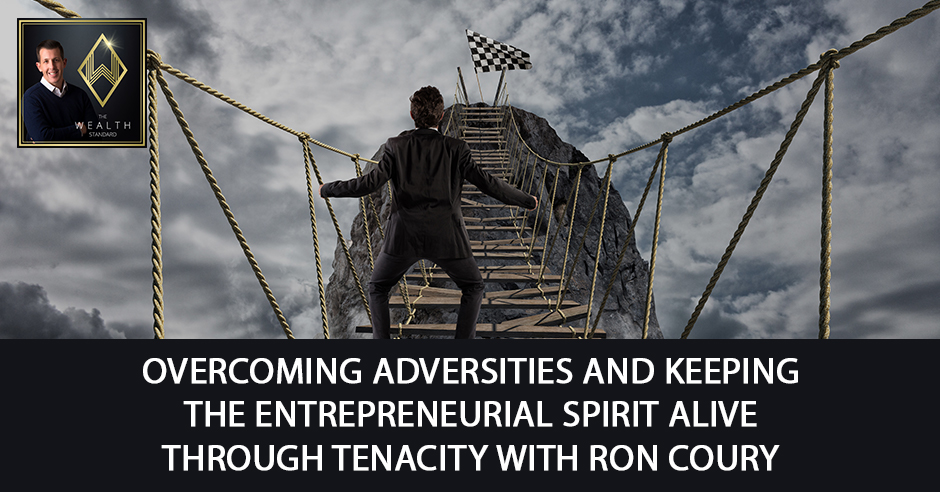
—
Watch the episode here:
Listen to the podcast here:
Overcoming Adversities And Keeping The Entrepreneurial Spirit Alive Through Tenacity with Ron Coury
My guest is Ron Coury. He has released a book called Tenacity: A Vegas Businessman Survives Brooklyn, the Marines, Corruption and Cancer to Achieve the American Dream: A True Life Story. Ron is a former casino dealer, realtor, as well as a partner in several restaurants, gaming bars and other ventures in the Las Vegas area. It was a fascinating story, a testament to this idea of tenacity and how important that is in weathering the storm that entrepreneurism typically brings. I hope you’ll enjoy the interview.
—
Ron, thank you so much for taking the time to talk with me. I’m excited about this interview.
Thank you, Patrick. It’s great to be with you.
You’ve had quite the history. Why don’t you give the audience a Reader’s Digest version of it and then I can interject with some questions?
Back in 1972, I was a teenager back in Brooklyn, New York. I found that college wasn’t suited to what interested me after three semesters. I joined the Marine Corps and after a couple of years of active duty service, I found myself at my last duty station in Barstow, California which was a two-hour ride from Las Vegas. A buddy of mine that I met in boot camp and we ended up being stationed together. We traveled to Vegas on our days-off every weekend and enjoyed the town quite a bit. When we got released from active duty, we moved here and went to work. As a result of working a couple of years and wanting to get into business for ourselves, it took us a couple of years to save some money and get some experience about living in Las Vegas. We purchased our first tavern. There was no real roadmap of what we intended to do with our lives except that we wanted to do more than just punching a clock for 40 years. What started with one tavern ultimately grew to over a dozen businesses.
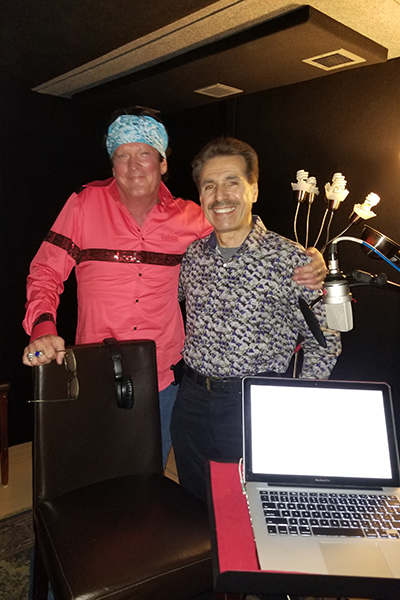
Growing up on the East Coast pre-Marines, were you entrepreneurial? A common characteristic is seeing that school is not right for you. You want to march to the beat of your own drum. Were you entrepreneurial then or did some of that happened during the Marines?
I released the book named Tenacity where I described my life story. In that book, I talked about a Christmas gift I got one day from my dad, which included a wooden shoe shine box. I was a kid and I was going to a parochial school. There was a uniform with the white shirt, tie and black shoes. The shoes were expected to be shined every day. My dad got me a shoeshine box and while I wasn’t thinking I was an entrepreneur at age twelve. I thought the shoeshine box might pose an opportunity to earn some money. On the corner of the street where I lived was a subway station that took local businessmen to the Wall Street train stop every morning. I’d get up early before school. I’d go down to the train stop and offer a shoe shine for $0.10, which in the late 1960s was not a little bit of money. I could knock out ten shines before school started. I felt a bit of the entrepreneurial spirit earning money, coming up with an idea from nothing and going home with money at the end of the day. It started there.
A group of friends I was with as teenagers started a band. I was not musically inclined and not wanting to be left out, so I suggested that I could be the band manager while each of them played instruments. As the band manager, it was my job to find paying gigs and the entrepreneurial spirit kicked in again. I identified a church hall that I was an altar boy for years earlier. The monsignor let me use the church hall for nothing. I learned a great new word called consignment. A friend in Brooklyn who had a beverage company let me use all the beer and soda I could put in my car and pay for what we ended up selling at the event.
Things were a lot looser back in the late 1960s where now, one would wonder how a teenager sold beer. It just happened. My friend said, “Load up whatever you want, come back, and pay me for whatever you sell and bring back what you don’t sell.” There we were, selling beers and sodas, making $1 or $2 on each one for something that costs us $0.10 to buy and charging admission at the door. We had a great night running our own venue. Shortly after that, I joined the Marine Corps and the entrepreneurial spirit got turned off for awhile until I moved to Vegas and was a civilian again.
Adversity is inescapable. What defines you is how you deal with that adversity. Click To TweetIt sounds interesting probably the story to why you chose the Marines. First off, why you enlisted and then chose the branch of the Marines as opposed to the other branches of the military. Maybe spend a moment on that.
Another thing that your audience might not be familiar with is the draft. Back in the ‘60s, there was a lottery every year and each birthday would be assigned a number. The lower your number, the more likely you’d be drafted. At the time, there was an ongoing war in Vietnam. If you had a low number in the draft, you would likely be drafted. If you didn’t have a student deferment, you were likely to go to Vietnam. When I quit college, I received a draft notice within days. For all the inefficiencies of the government, the selective service system was on the ball. With so many guys in my neighborhood going to Vietnam and coming back without arms, legs, and deceased, I wanted to optimize my chance of coming back whole and coming back at all.
Rather than being drafted in whatever arbitrary assignment the draft board would render, I went and interviewed with recruiters from each of the branches. I learned about the Marine Corps training. I learned that it was harder than most, but it trained you better for war. I thought by going through that I could optimize my chances at success. I enlisted in the Marine Corps. It negated the draft notice and I reported for duty in March of 1972. Upon graduation from boot camp and advanced infantry training in the summer of ‘72, my buddy and I had orders for Vietnam as did everyone in our battalion in boot camp. At that time, President Nixon announced de-escalation, which meant no one else would go over to Vietnam and many thousands of troops per month would be withdrawn. We ended up trained for war but without a war to go to. We ended up being assigned to a supply center in the middle of the desert in Barstow, California. That’s how the Marine Corps thing happened and how I ended up in Las Vegas.
Out of that story, I find it interesting where it seems like you use some foresight to look at a certain outcome. One being you’ve seen guys coming home without arms, legs or not making it home at all. You made a decision as to how you would mitigate that risk, which nobody wants as a result of their service. Did you notice that foresight previous to this and some of the things you did, whether it was the shoe shine thing or otherwise, and then carry forward that to the foresight that you use in going to Las Vegas?
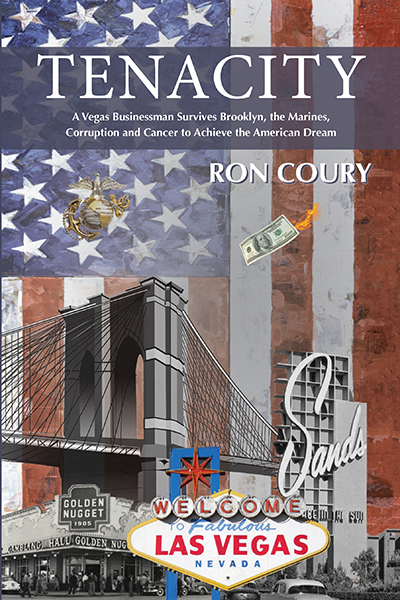
Tenacity: A Vegas Businessman Survives Brooklyn, the Marines, Corruption and Cancer to Achieve the American Dream: A True Life Story
I believe that my parents raising me as they did had instilled in me a level of perseverance and determination to chart my own destiny. Whether it was taking an insignificant Christmas gift like a wooden shoe shine box down to earn money or not want to be left out of the band concept but finding my own place by suggesting I’d be the band’s manager. It was something that developed naturally for me. It carried me through life when I came to Las Vegas and I became a casino dealer. As I worked on the tables every night at the Tropicana Hotel, I envisioned getting into business for myself someday for quite a unique reason. My dad’s three brothers died from cancer. My dad had survived colon cancer. I was mindful that with the strong family history, it was not likely that I would dodge the cancer bullet. It was more a question of when it would come.
I moved to Vegas. I got married and planned to have children. I remember one day, I was standing behind a blackjack table with no customers at the Tropicana. I was thinking, “What would I do if I got cancer one day and I was unable to support my family? How does someone earn money when they cannot report to work every day? In fact, how would you even make a house payment and a car payment when you were earning nothing?” I thought of getting into a business where if I could grow it and put in a good management team, I would generate an income whether I could physically go to work or not for as much as a years’ time. I became a bit driven to find a business that I could get into realizing I didn’t have much of an education. I didn’t have the degrees to become a lawyer, doctor or an architect. I just had a willingness to work and a refusal to accept failure as an option.
With your experience in the Marines, you said your entrepreneurial spirit was suppressed there for a few years. Did you gain anything, whether it was the discipline factor, working in teams or camaraderie that allowed those thoughts in regard to building a business and specifically building a team?
I believe it instills in you a level of determination that you will come up with an idea and whether you have to go through a barrier or around it, not let failure prevail. As a result, if I set my heart on something, I wasn’t willing to take no for an answer very easily. There are multiple instances of such things in the book that I wrote that describes that in greater detail. To find the right business for someone without a formal education was the challenge. One of the things I did as a dealer at night was I decided to become a realtor by day. Las Vegas was a very small town back then but I saw a great growth potential so I could sell real estate during the day. I can pick my hours. I could work the casino job at night.
There's never a wrong time to do the right thing. Click To TweetAs a result of being a realtor for four years, an opportunity developed, which was a tavern. As I contemplated it, I thought I can hire people that know how to bartend, what a tavern would need is a strong hand, which in answer to your question, the Marine Corps built in me a level of comfort that I was not only in great physical shape, but I could handle myself. Back then it was not like the taverns now. People are very conscious about drinking and driving. Most people have two or three drinks the most and call it a night. Back in the ‘70s, guys would pound down drinks all day long and you had quite a few more drunks than you do in a bar now. A strong hand to run a tight ship was necessary. I felt like I had the training to do it.
You just need to go into businesses and make some good choices with managing books, ordering products before they run out, the simple things. It was a plate full of duties that I had to manage. Getting into that first tavern, later building a kitchen and learning the restaurant business on the go was quite interesting. It turned out to be quite lucrative for us, especially when the unique things about Las Vegas Space Taverns is you can engage in gaming whereas taverns and other cities, including Atlantic City, cannot. When you bought a bar and you had a couple of slot machines in the corner, they weren’t a great source of revenue. When interactive gaming became a reality in the 1980s with the invention of video poker, taverns became less a means of generating revenue by selling drinks, chicken wings and hamburgers, but getting more a gaming property. Marketing your property to bring in players keep them happy with free drinks, good food, and comping them and keeping those $100 going into your machines became the way of business. We ultimately parlayed that first location into a total of four.
As you look back during that period of time, the ‘70s to early 2000s, and the success that you experienced, that’s an environment that changed drastically over that period of time. Las Vegas is what I’m referring to. What would you say were some of the biggest challenges that you faced in building the empire that you built?
One of the big challenges which the book is centered around is as Las Vegas grew with gaming, they began to limit the amount of growth that a tavern could engage in. They are pretty much limiting taverns to fifteen slots. They are requiring that you be a hotel before you can engage in unlimited gaming. There are outlying jurisdictions to Las Vegas with outlying cities, much like you would go from a neighborhood in New York from one neighborhood into another. You would cross the street in Las Vegas and you would be in one of these other cities. It wasn’t a great track, but these outlying cities had their own city councils, their own police departments, and offered more gaming growth because they did not enjoy the building boom that was going on in Vegas. The challenge I encountered was as I wanted to grow in gaming, we purchased a piece of property in one of these outlying cities that did not have a room of requirements.
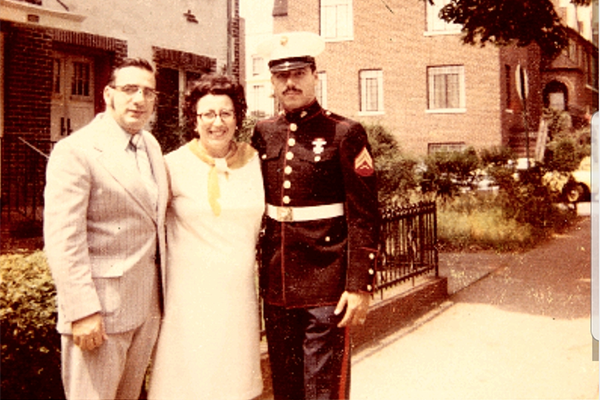
We were zoned for non-restricted gaming and purchased a half-acre of land on the main thoroughfare believing it would be a no-brainer to get the necessary use permits because it was properly zoned. Unbeknownst to me at the time, there was a councilman who was a competitor in one of my other non-gaming business. He intended to be a competitor in the food and beverage and gaming business. He didn’t disclose any of it and he was a staunch critic of our licensing after we already bought the property and started building the casino. He used his small-town police department to frame me in multiple felony charges. It was the training that I received in the Marine Corps that enabled me to overcome those challenges in some very creative and unique ways.
As you could imagine, fighting a city that’s pitting a fight against you with tax dollars when you’re just a small businessman wasn’t easy. To overcome the charges that they framed me with and the levels they would stoop to, to try to do away with me as a competitor to this councilman in the private world of business is the centerpiece of the book Tenacity. I don’t want to give up how it turned out because it makes for a great story with death threats that I encountered, what I did about it, and how I confronted this councilman one day, face-to-face. It was that level of diligence, determination and perseverance that enabled me to ultimately overcome those challenges and build and operate that neighborhood casino.
Being in the Marines, where you’re being prepared for war and what’s on the line is life itself, both your own life and the life of those you’re serving with. You’re looking at the discovery process there, I know that it’s profound. I haven’t served in the military but I’m around many who have. At the same time, I look at what you experienced there as far as an understanding of yourself, what you can handle and what you can persevere through or over as it related to this specific experience. What did you learn about yourself that was different from some of the other experiences you had leading up to that?
I learned that as you try to grow, what is inescapable is adversity. You are going to encounter obstacles if you’re trying to do big things. In building nearly twenty businesses, there were certainly some obstacles. Particularly in addition to developing that neighborhood casino, I started in a limousine service. I found that breaking into the transportation business in Southern Nevada also came with some very interesting challenges. If adversity is inescapable, then what defines you is how you deal with that adversity. To fight back and not break the law yourself is very challenging. When your opponents are willing to stoop to anything to do away with you as a competitor, to overcome that and prevail and maintain your level of dignity, ethics and honor was a challenge. I truly attribute service in the Marine Corps to helping me prevail in those challenges.
As a final question, this goes and relates to your experience and what you could potentially teach other budding entrepreneurs, existing entrepreneurs or business owners. What are a top couple of things would you counsel your 21-year-old self, your post-Marine or right as you’re moving to Vegas self that may have helped you navigate waters differently?
I’m pretty happy the way I navigated the waters. I wouldn’t suggest doing something different. I could not have accomplished what I was fortunate enough to prevail in if not for a developing mind, body and soul. Mind, you cannot let adversity overcome you. You need to think about the challenge in front of you and determine a strategy to overcome it. Body, stay in peak shape, not knowing what’s to come. It wasn’t just running a clean and safe feeling tavern so customers would come in. In 2005, I was diagnosed with esophageal cancer. I endured a twelve-hour surgery where I was opened from chin to belly button. They re-sectioned half of my stomach, took out my esophagus, and connected my remaining stomach to my throat. That particular cancer only has an 8% survival rate. That is because of the aggressive nature of esophageal cancer, plus most bodies are not able to be filleted for twelve hours. If I were not in great shape at the age of 53, I wouldn’t have survived that.
In soul, what I refer to is not being religious and going to church every Sunday. It’s more on making decisions that I got coined the phrase to my three children, “There’s never a wrong time to do the right thing.” If you live life by the golden rule, “Do unto others,” and you can attach being in good frame of mind, having a strong body to do what you plan on doing, with the right mental attitude, then a lot of your audience will find that when adversity comes, rather than saying, “I never saw this coming,” they’ll say, “I knew it was coming. I just didn’t know in what way it would come. I’m going to sit down, strategize a way to get over this challenge, and not let failure be an option.”
We’ve talked about it briefly, where adversity is one of those catalysts to grow. Trying to avoid it is unwise because the lesson that you can learn through adversity is profound and they’re going to continue to come. Ron, this has been awesome. Thank you so much for your time. What’s the best way to buy the book? What are the best ways to learn more from you if the audience feels inclined to do so?
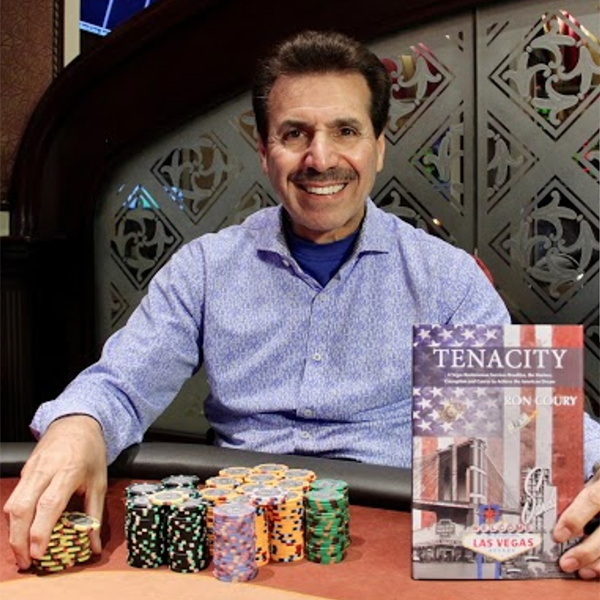
The book is available in four formats on Amazon, hardcover, paperback, audiobook which I hired Hollywood legend, Michael Madsen, to do my audiobook. Many will know him from Reservoir Dogs, Kill Bill, and the Donnie Brasco fame. He’s from Chicago. He did a great job with my audiobook. It’s also available as eBook via Kindle. All four versions are on Amazon and the book title is Tenacity. My last name is Coury. My website promoting the book is RonCouryAuthor.com where people can hit a link to get to the Amazon site and learn more about me and look at a gallery of over 100 photographs.
This is an awesome conversation. Thank you for sharing your experiences and sharing your book with us. I appreciate it. It’s great to meet you.
Patrick, thank you as well. I’ve enjoyed talking to you and if you ever get to Las Vegas be sure to look me up.
Important Links:
- Tenacity: A Vegas Businessman Survives Brooklyn, the Marines, Corruption and Cancer to Achieve the American Dream: A True Life Story
- Ron Coury
- Audiobook – Tenacity
- Kindle – Tenacity
- https://www.Amazon.com/Tenacity-Businessman-Survives-Brooklyn-Corruption/dp/1732721009/ref=sr_1_1?keywords=tenacity+ron+coury&qid=1561644971&s=gateway&sr=8-1
- https://RonCouryAuthor.com/
- https://www.Facebook.com/RonCouryAuthor/
- https://Twitter.com/ron_coury
- https://www.LinkedIn.com/in/roncouryauthor/
- https://www.Instagram.com/roncouryauthor/?hl=en
About Ron Coury
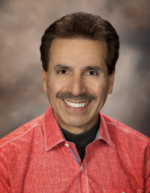 Born and raised in Brooklyn, New York, Ron Coury arrived in Las Vegas in 1973, following two years of service in the U.S. Marine Corps. Ron has been a casino dealer and a Realtor, as well as a partner in restaurants and gaming bars, major graphics and glass companies, and several automobile dealerships throughout the western United States. He is currently a board member of the Las Vegas Metropolitan Police Department Foundation, as well as several companies and charitable organizations. He has three children and five grandchildren and remains active in business and community service endeavors throughout Southern Nevada.
Born and raised in Brooklyn, New York, Ron Coury arrived in Las Vegas in 1973, following two years of service in the U.S. Marine Corps. Ron has been a casino dealer and a Realtor, as well as a partner in restaurants and gaming bars, major graphics and glass companies, and several automobile dealerships throughout the western United States. He is currently a board member of the Las Vegas Metropolitan Police Department Foundation, as well as several companies and charitable organizations. He has three children and five grandchildren and remains active in business and community service endeavors throughout Southern Nevada.

